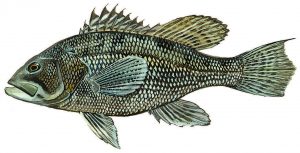 DOVER – After extensive stakeholder input and a public nomination process, Department of Natural Resources and Environmental Control Secretary Shawn M. Garvin announced members of the Coastal Zone Conversion Permit Regulatory Advisory Committee and the committee’s chair. The Regulatory Advisory Committee (RAC) will provide guidance and feedback to DNREC on development of Coastal Zone regulations that are required to be in place for issuance of conversion permits by Oct. 1, 2019.
DOVER – After extensive stakeholder input and a public nomination process, Department of Natural Resources and Environmental Control Secretary Shawn M. Garvin announced members of the Coastal Zone Conversion Permit Regulatory Advisory Committee and the committee’s chair. The Regulatory Advisory Committee (RAC) will provide guidance and feedback to DNREC on development of Coastal Zone regulations that are required to be in place for issuance of conversion permits by Oct. 1, 2019.
The committee’s first meeting is scheduled for Thursday, June 14 from 9 a.m. – 4 p.m. at the American Birding Association Headquarters, 93 Clinton Street, Suite ABA, Delaware City, DE 19706. Committee meetings are open to the public.
“Delaware’s Coastal Zone means different things to different people, and those concerns and interests deserve to be represented and considered fairly in this regulatory development process,” said DNREC Secretary Garvin. “We are grateful to the women and men volunteering their time to the Committee and this important cause.”
The members of the Regulatory Advisory Committee have diverse backgrounds, experiences, and perspectives related to Delaware’s Coastal Zone that will guide DNREC in developing this new permitting program. Representatives come from environmental organizations, business and industry, affected communities, technical fields, public health, and other diverse backgrounds.
The Coastal Zone Conversion Permit Regulatory Advisory Committee will be chaired by Justice Randy J. Holland. Justice Holland was appointed to the Delaware Supreme Court in 1986, when, at 39 years old, he became the youngest person to be appointed to the Court. He retired from the Supreme Court in March 2017 after serving for over 30 years. Recognized as an expert on corporation law, corporate governance, appellate practice, and state constitutional law, Justice Holland has written more than 700 reported opinions, which include many seminal corporate law decisions. Justice Holland has written, co-authored, or edited nine books, and also has published several law review articles, primarily focused on corporate law, judicial ethics and legal history. He has taught corporate governance, appellate practice, and state constitutional law as an adjunct professor for many years. He has been recognized as one of the leading influencers on business ethics in the United States.
Members of the Coastal Zone Conversion Permit Regulatory Advisory Committee are:
- Jennifer Adkins, Partnership for the Delaware Estuary
- William Ashe, International Longshoreman’s Association 1694
- Neeraj Batta, Batta Environmental
- Brenna Goggin, Delaware Nature Society
- Michael Hackendorn, Delaware Building and Construction Trades Council
- Ron Handy, Boys & Girls Club of Delaware and Route 9 Corridor Coalition
- S. Douglas Hokuf, New Castle County
- Herb Inden, City of Wilmington
- Tim Konkus, Delaware City Marina & Main Street Delaware City, Inc.
- Dr. Awele N. Maduka-Ezeh, Division of Public Health Medical Director
- James Maravelias, AFL-CIO
- Dr. Eugene McCoy, Council of Civic Organizations of Brandywine Hundred, Inc.
- Jerry Medd, Pilots’ Association for the Bay and River Delaware
- Jeffrey Richardson, University of Delaware and Imani Energy
- Robert Whetzel, Richards, Layton & Finger Law Firm and Delaware State Chamber of Commerce
- Dolores Whilden, resident, Claymont
- Marian Young, Brightfields Inc.
Passed by the General Assembly and signed by Governor Carney in August 2017, the Coastal Zone Conversion Permit Act allows for permitted industrial construction and operation in 14 existing sites of heavy industry use, and in certain circumstances, permitted bulk product transfer, within Delaware’s Coastal Zone. The Act requires DNREC to develop regulations determining how the permitting program will operate and defining specific requirements regarding environmental impact assessments, economic impact assessments, financial assurance, and environmental offsets.
DNREC requests that those planning to attend the June Regulatory Advisory Committee meeting notify the Department by emailing Brittany.Klecan@delaware.gov, or by calling 302-735-3480. For more information, visit de.gov/conversionpermits, or call 302-735-3480.
Media contact: Michael Globetti, DNREC Public Affairs, 302-739-9902
No. 48, No. 148
-30-

